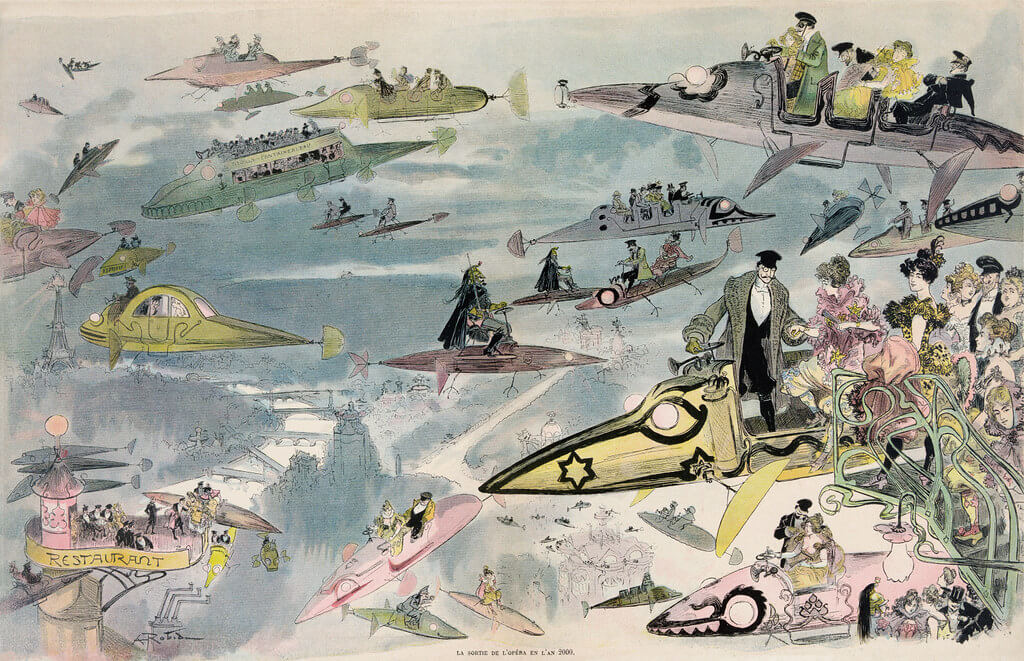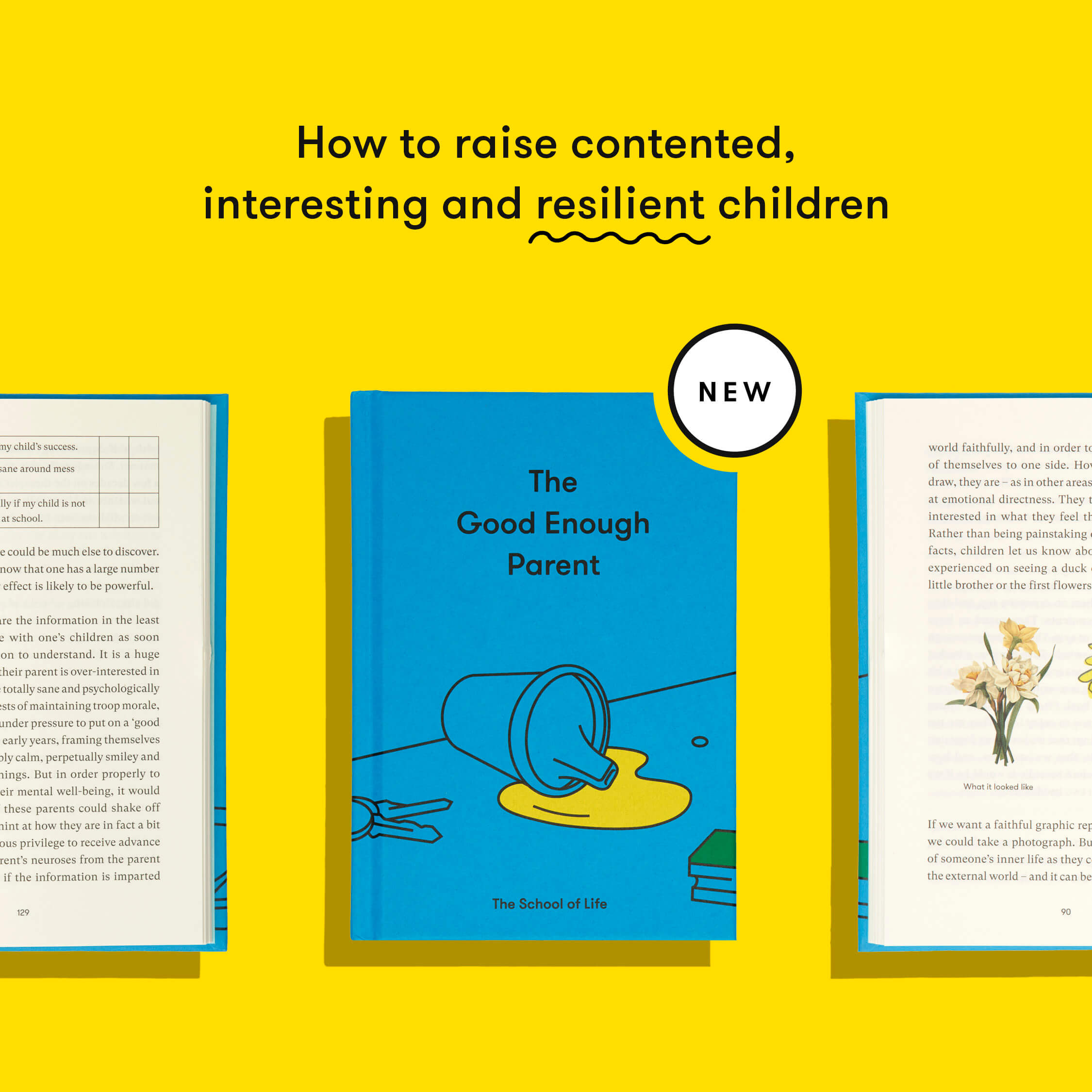Relationships • Parenting
The Importance of Play
The useful thing about children is that they don’t let their imaginations get hampered by the more irritating or incidental aspects of reality. They will take one look at a sofa and see in it the basis for an ingenious spacecraft capable of travelling swiftly and comfortably to adjoining galaxies. An unprepossessing backyard will make the ideal premises for a new kind of restaurant offering fascinating combinations of food not yet developed in the ordinary restaurant sector. They will know how to size up a sibling and recognise a brave, disciplined and resolute national leader who will be able to lead her country out of its troubles and invent a new way of doing politics.
Children don’t see a need to wait until every practical detail has been sorted out before beginning to imagine fresh schemes and develop original proposals. They know the gist of what has to be done and are keen to sketch out at speed the broad strokes of their plans. They have none of the normal adult respect for so-called sensible objections to every new idea, or obedience to the many reasons why something should not be tried and the status quo left morosely undisturbed.
Little children tend to be right in their hunch that the practical details can generally be sorted out with time, but that what one really needs at the outset is vision. Most impressive developments have been works of the imagination long before they were feats of engineering or politics, art or science. They were ideas that needed to be pictured with a fanciful, confident and unfrightened mind, one that would not curtail its freedoms by pointing out that something might cost too much, or that some members of the team might be unsettled by an innovation, or that there were government rules against that sort of thing.
Take flying as an example. On the one hand, powered flight was a practical breakthrough reliant on some steady work around wing shapes, petrol engines and landing gears. But there was arguably as much imagination in the plane as there was engineering; the plane had to be dreamt of before it could be designed. A lot of this imaginative work was carried out by pioneers of playful thought in the 19th century, the great age of technological daydreaming, when utopian big children imagined how one might fly between cities in miraculous heavier-than-air machines – and one day make it from Paris to New York in only a few hours.

Albert Robida, Leaving the Opera in the Year 2000, 1902

J. Xaudaro, Concorde before Concorde, 1920: ‘Thanks to the air express, New York will be only one and a half hours away from Paris. Price of the trip: 1,000 dollars.’
These pioneers of technology also imagined email, submarines, cross-Channel tunnels, vacuum cleaners, mobile phones and digital education. It is a tribute to the scale of their ambitions that reality still has to catch up with their thoughts around jetpacks and winged firefighters.



Children don’t only have things to teach us around playfully imagining the future. They are also canny at coming up with imaginary friends. Reality can be very poor at providing us with the kinds of people we actually need in order to feel understood and comforted. What we long to hear and the sort of interactions we crave may not always be possible in the compromised conditions of a typical home. But this rarely holds children back. They will latch ingeniously onto a promising-looking thirty-centimetre piece of cloth and stuffing with button eyes and decide that this is the friend they always wished for and deserve: someone who can understand their sorrows, will have comforting things to say when they are confused, will want to have cups of tea with them in the night and will always, always be ready for a hug.

This teddy bear, housed in London’s Victoria and Albert Museum’s teddy collection, is named Little Tommy Tittlemouse. It was the much loved companion of the donor, a Mr J. H. B. Gowan. He continued to send birthday cards to his ‘son’ after he had given the bear to the V&A in 1965. This tradition only ended with his death. Tommy’s birthday is on 24 November and the V&A continues to receive cards for Tommy from all over the world.
Later on, they may discover books and try out a similar move. These so called bookworms learn how to feel connected to a person who might have died in 1420 CE or 300 BCE and who tells them important things with a freshness and clarity no one in their vicinity can match. They take to carrying this friend around with them in a bag wherever they go, and don’t mind if its corners get dirty or pages mottled. They stay up late with the ‘friend’ and might weep at a tenderness and understanding that seems so far from what they receive from their own acquaintances. A few of these children even go on to become writers, and one day confide to a page what it feels hard to express to others in person – a grown-up version of the move they might once have made in childhood, when their frayed bear patiently heard their upsets. Bookshops, the toy shops of big people, end as places where our disappointments with others can be mediated and redeemed, and friends not found in life can be secured through the grown-up game we soberly call ‘literature’.
The ideal position of play in life was first explored by the Ancient Greeks. Among all their gods, two mattered to them especially. The first was Apollo, god of reason and wisdom. He was concerned with patience, thoroughness, duty and logical thinking. He presided over aspects of government, commerce and what we would now call science. But there was another important god, a diametrically opposed figure whom the Greeks called Dionysus. He was concerned with the imagination, impatience, chaos, emotion, instinct – and play. The ‘Dionysian’ involved dreams, liberation and a relaxation of the strict rules of reason. Importantly, the Greeks did not think that any life could be complete without a combination of these two figures. Both Apollo and Dionysus had their claims on human lives, and each could breed dangerously unbalanced minds if they held undiluted sway.
When children have driven us to the edge of sanity with their games (along with the attendant shrieks, follies, destroyed sofas and gluey potions), we should keep in mind how much we, weary guardians of Apollo, remain in debt to all the young followers of Dionysus and their ever-present call to bend reality in the direction of our dreams.
The Good Enough Parent
New Book Out Now

The Good Enough Parent is a compendium of lessons about how children’s minds operate and what they need from those who look after them so they can develop into the best version of themselves.
Written in a tone that is encouraging, wry and soaked in years of experience, The Good Enough Parent is an intelligent guide to raising a child who will one day look back on their childhood with just the right mixture of gratitude, humour and love.

























